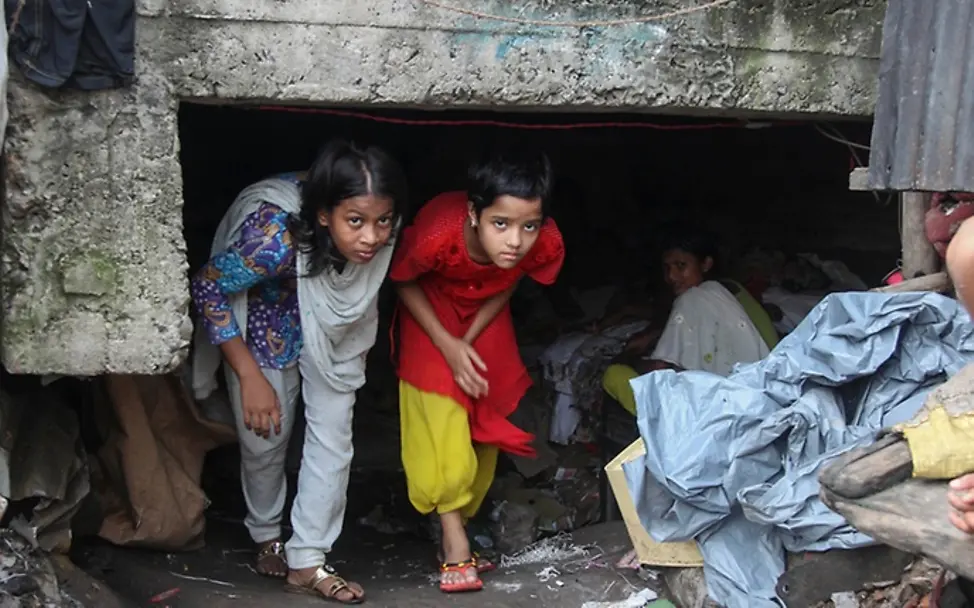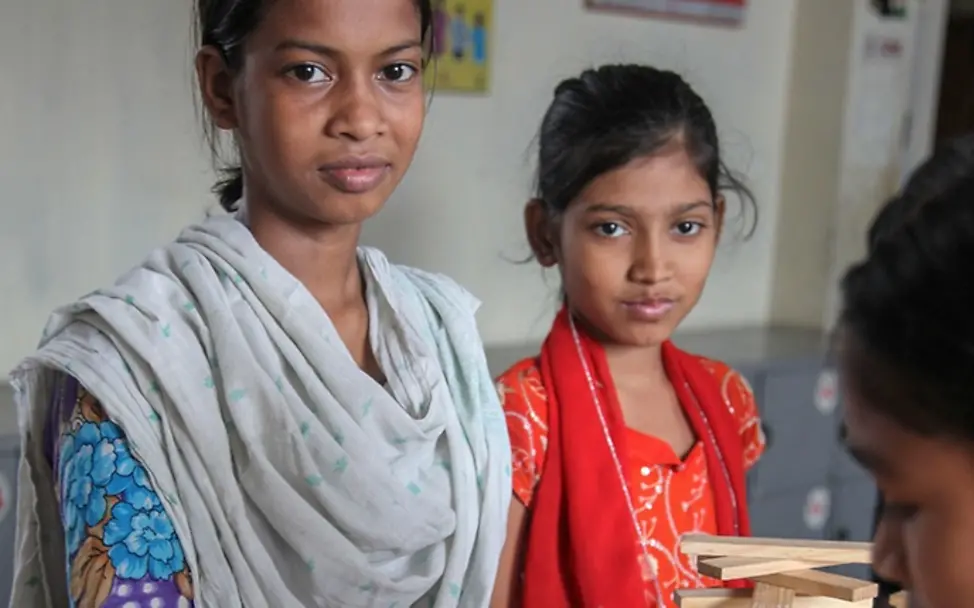EQUAL OPPORTUNITIES FOR GIRLS
“Onetime men wanted to buy me”, 13 years old Sharmina remembers. For 5 years she lived in the streets of Dhaka, Bangladesh. Alone – always fearing violence and abuse. Also, she often had to pick her food out of trash.

Sharmina (on the left) shows her old shelter she used to live at
Sharmina’s past.
Sharmina never had an easy life. She ran away from home escaping her drug-addicted father who beat her on a daily basis. She never got to know her mother. “I used to steal and beg, carried heavy charges at the port and slept on the streets” she describes her survival.
Today, Sharmina can be a child again. Instead of struggling to survive she can sleep and feel secure at a children center in Dhaka. She now even goes to second grade and is one of the best students in her class. UNICEF supports shelters and temporary schools in many of Bangladesh’s bigger cities.

Playing and being a child – this is possible at the children center.
© UNICEF
“I feel like everything’s possible. Here, I can learn, play, dance and sing, Sharmina says. The uprooted girl found a social family of nine nurturers and about 60 other girls. When she’s grown up, Sharmina wants to become a teacher.
Make our world a better home for children
Girls are especially vulnerable. In many countries they are viewed less valuable. They have to endure sexual abuse and survive genital cutting or acid attacks. Most sadly, living with their families often isn’t more secure either: In many countries girls are forced to marry someone as a child.
The United Internet for UNICEF Foundation helps UNICEF to set up facilities to give victims psychological and medical help. In the most communities UNICEF supports women’s groups and committees protecting children. They fight for equal rights and warn others about danger. For instance, they caution parents against presumably helpful human traffickers offering their daughters “good jobs”.